There’s no doubt about it – Sony cameras are some of the best on the market today. But what if you’re a Canon lens user? Can you still use your lenses on a Sony camera body? In this comprehensive guide, we’ll answer all of your questions about using Canon lenses on Sony cameras, including product reviews and tips for getting the most out of your gear. So whether you’re just starting out in photography or you’re a seasoned pro, read on for the answers you need to make the switch to Sony!
What limitations are there?
Less Reliable Focus
When it comes to autofocusing, Sony’s E-mount lenses are generally considered to be on par with Canon’s. However, when you start using adapted Canon glass on a Sony body, the focus speed and accuracy will take a hit. This is due to the fact that Sony cameras use phase detection autofocus (AF) while Canon uses contrast detection AF. As a result, the Sony camera has to work harder to try and figure out what you’re trying to focus on when using a Canon lens.This can lead to slower and less accurate focus, especially in low light conditions.[1]

OEM Is Faster
If you’re looking for the best possible performance from your camera, using lenses designed specifically for it is usually the way to go. That’s why most professional photographers stick to what’s called OEM, or original equipment manufacturer gear. In other words, they use Canon lenses on Canon cameras, or Nikon lenses on Nikon cameras. There are a few reasons for this:
- First and foremost, OEM gear is generally better quality and easier to use than aftermarket gear. The big brands have R&D departments that design their products to work perfectly together, so you know you’re getting a well-built product that will perform as advertised.
- Secondly, it’s usually faster and easier to get support from the manufacturer if you have any problems with your gear. If you buy a Canon lens and it breaks, you can send it back to Canon for repairs. But if you buy a third-party lens and it breaks, you’re on your own.
- Finally, OEM gear is usually more expensive than aftermarket gear. That’s because the big brands can charge a premium for their products. But in many cases, the extra cost is worth it for the peace of mind and reliability that comes with using OEM gear.[1]
Expensive Adapters
The most popular and least expensive way to use Canon lenses on Sony is with a manual adapter. This allows you to mount the Canon lens on the Sony camera, but you’ll lose autofocus and aperture control. You can still shoot in manual mode, but it’s not ideal for fast-paced shooting or video work.
Another option is to buy an expensive electronic adapter that preserves autofocus and aperture control, but these adapters are few and far between. They’re also quite pricey, so unless you absolutely need those features, we don’t recommend this route.[1]

What Brands of Lenses Are Compatible With Sony Cameras?
You may be surprised to learn that there are a number of brands of lenses that are compatible with Sony cameras. In addition to Canon, Nikon, and Sigma, there are also a few third-party lens manufacturers that make lenses specifically for Sony cameras. A few of the most popular ones include Zeiss, Tokina, and Tamron.
How Can I Identify The Sony Camera System I Have?
To find out which Sony camera system you have, look at the model number on the front of your camera. The first letter of the model number will tell you which series your camera is in:
- E Series: entry-level cameras with basic features
- A Series: advanced cameras with more features and better performance
- N Series: high-end cameras with professional features and quality
If you’re not sure which series your camera is in, you can check the list of Sony camera models on their website.[2]
How Do I Tell Which Canon Lenses Work With Sony Cameras?
There are a few things you’ll need to look for when determining whether or not a Canon lens is compatible with your Sony camera. First, check the mount type. All Canon EF (full frame) lenses will have the EF mount, while Canon EF-S (APS-C) lenses will have the EF-S mount. Sony E-mount cameras can use both types of Canon lenses via an adapter, but you may lose some functionality, like autofocus.
Second, take a look at the aperture. On most Canon lenses, the maximum aperture is printed on the front of the lens barrel near the mount. If it says “EF” or “EF-S,” that’s the mount type; if it has a number next to it, like “f/32,” that’s the maximum aperture. Sony E-mount cameras have a smaller sensor than Canon’s full frame cameras, so you’ll want to make sure the lens you’re using has a relatively low maximum aperture so as not to cause vignetting (darkened corners in your photos).
Finally, consider any other features that may be important to you, like image stabilization or weather sealing. Some Canon lenses offer these features, but they may not work with all Sony cameras.[2]

How To Adapt My Canon EF Lenses To My Sony Mirrorless Camera?
Passive Lens Adapters
There are a few different types of adapters that will allow you to use Canon lenses on Sony mirrorless cameras, but the most common type is the passive lens adapter. Passive adapters do not have any electronic components and simply provide a physical connection between the two lens mounts. This means that you won’t be able to take advantage of any of the electronic features of Canon lenses, such as autofocus or image stabilization.
Electronic Lens Adapters
There are a few different types of adapters that you can use to attach Canon lenses to Sony cameras. The most common type is the electronic lens adapter, which allows you to control the aperture and focus of your Canon lenses from your Sony camera body.
The biggest downside to using an electronic lens adapter is that they can be quite expensive, typically costing around $200 or more. However, if you’re serious about using Canon lenses on your Sony camera, then an electronic lens adapter is definitely the way to go.
Another option is to use a manual lens adapter, which is a much simpler and cheaper way to attach Canon lenses to Sony cameras. These adapters don’t have any electronic components, so they’re very easy to use and are typically very affordable, usually costing less than $100.
The downside to using a manual lens adapter is that you won’t be able to control the aperture or focus of your Canon lenses from your Sony camera body. However, if you’re only going to be using your Canon lenses for photography and not for videography, then a manual lens adapter should suffice.
Finally, there are also third-party lens adapters that can be used to attach Canon lenses to Sony cameras. These adapters typically come with a few extra features, like image stabilization and autofocus, but they can be quite expensive, typically costing around $200 or more.[2]

If you’re serious about using Canon lenses on your Sony camera, then an electronic lens adapter is definitely the way to go. However, if you’re only going to be using your Canon lenses for photography and not for videography, then a manual lens adapter should suffice.
Our Adapter Recommendations For Using Canon Glass on Sony Bodies
If you’re looking for an adapter to use your Canon lenses on Sony mirrorless cameras, then we have a few recommendations for you. Depending on which Canon lens you want to use, and what functions you need, there are a few different adapters that might be right for you.
The first option is the Metabones T Smart Adapter. This adapter allows full electronic control of aperture and autofocus, as well as image stabilization if your Canon lens has it. The Metabones T Smart Adapter also supports in-camera aberration correction features like chromatic aberration compensation (CAC) and distortion compensation (DC).
If you’re not looking for all the bells and whistles, or if you’re using an older Canon lens that doesn’t have electronic aperture or autofocus control, then the Fotodiox Pro Lens Mount Adapter is a good option. This adapter is less expensive than the Metabones T Smart Adapter, and it still allows you to use all of your Canon lenses’ functions on Sony mirrorless cameras.
Finally, if you’re just looking for a basic adapter to use your Canon lenses on Sony mirrorless cameras, then the Vello Lens Mount Adapter is a good option. This adapter doesn’t allow any electronic communication between the lens and camera body, but it’s very affordable and will get the job done if you’re just looking to use your Canon lenses on Sony mirrorless cameras for basic photography.[3]
What Problems Will You Face Using The Adapter?
The first thing you need to be aware of is that there are a couple of potential problems you might face when using an adapter. The electronic connection between the lens and the camera body might not work, which means that features like autofocus and image stabilization will not work. In addition, the adapter might not fit snugly on the lens or camera body, which could cause issues with light leaks.

Another potential problem is that your camera’s autofocus system might not be compatible with the Canon lens. This means that you’ll have to focus manually, which can be difficult if you’re not used to it. Finally, you might experience vignetting, which is when the corners of your images appear dark.[3]
FAQ
Can Sony cameras use other lenses?
Yes! Sony cameras can actually use a variety of lenses- not just Sony lenses. This is thanks to the fact that Sony uses the E-mount lens system. The E-mount system was first introduced on Sony’s NEX line of mirrorless cameras, but has since been adopted by their Alpha series as well.
This means that you can use a number of different types of lenses on your Sony camera, including Canon lenses. In fact, many photographers who switch to Sony do so in part because they can continue to use the Canon glass they’ve already invested in. Using Canon lenses on Sony is a great way to save money and still get the high quality images you want.
What lens brands are compatible with Sony?
If you’re looking for the most compatible lenses with your Sony camera, then you’ll want to stick with Sony lenses. However, there are also a number of other lens brands that are compatible with Sony cameras, including Canon, Nikon, and Sigma.
When it comes to choosing the right lens for your needs, it’s important to consider a few things. First, think about the type of photography you want to do. If you’re mostly shooting landscapes or portraits, then you’ll probably want a different lens than if you’re mostly shooting action or sports.
Next, consider the size and weight of the lens. If you’re going to be carrying your camera around a lot, then you’ll want something that’s lightweight and easy to carry.
Finally, think about the price. If you’re on a budget, then you’ll want to stick with Canon or Nikon lenses, which are typically less expensive than Sony lenses. But if you have the money to spend, then you might want to consider investing in a high-end lens from Sigma or another brand.
Can Canon lenses be used on other cameras?
Yes, in fact many lenses are designed to be used with more than one type of camera. For example, Canon EF and EF-S lenses can be used on Canon EOS cameras, but they can also be used on other camera types with the right adapter. The same is true for Nikon F-mount lenses – they can be adapted to work with Nikon Z-series cameras, as well as Sony E-mount cameras.
Do all lenses fit all cameras?
No, not all lenses fit all cameras. Each camera has a specific mount type, and each lens has a specific mount type. In order for a lens to work with a particular camera, the two must have matching mount types. For example, Canon lenses will only work with Canon cameras–you cannot put a Canon lens on a Nikon camera (without using an adapter).
How do I know if a lens is compatible with my camera?
There are a few ways to determine if a lens is compatible with your camera. The first thing you’ll want to do is check the mount type. Each camera brand has their own proprietary lens mount, so you’ll need to make sure the lens you’re considering is compatible with your camera’s mount.
Another way to tell if a lens will work with your camera is by checking the focal length. Different cameras have different sensor sizes, which means that lenses of the same focal length will produce different field of views on different cameras.
Useful Video: the TRUTH about using CANON lenses on SONY cameras!
Conclusion
So, there you have it! Everything you need to know about using Canon lenses on Sony cameras. We hope you found this article helpful and informative. If you have any questions or tips of your own, please feel free to leave them in the comments below! Thanks for reading!
As always, happy shooting!
References:
- https://sonyphotoreview.com/canon-lenses-on-sony-cameras/#
- https://thetechreviewer.com/do-canon-lenses-work-on-sony-camera/
- https://cameraguider.com/can-you-use-canon-lenses-on-sony/

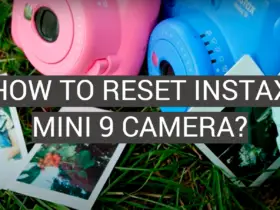
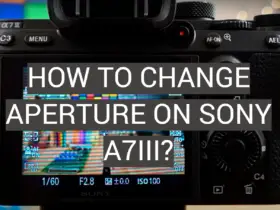
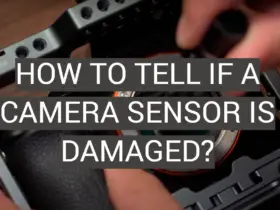
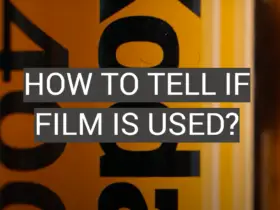

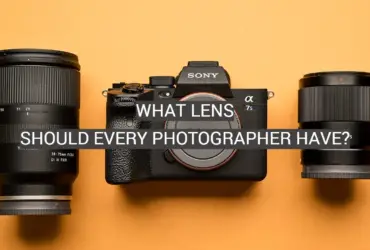
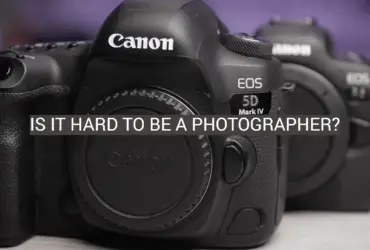
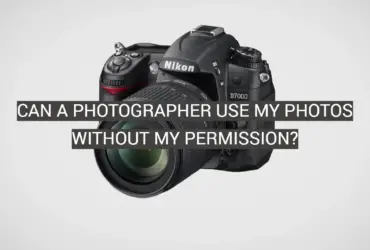



Leave a Reply